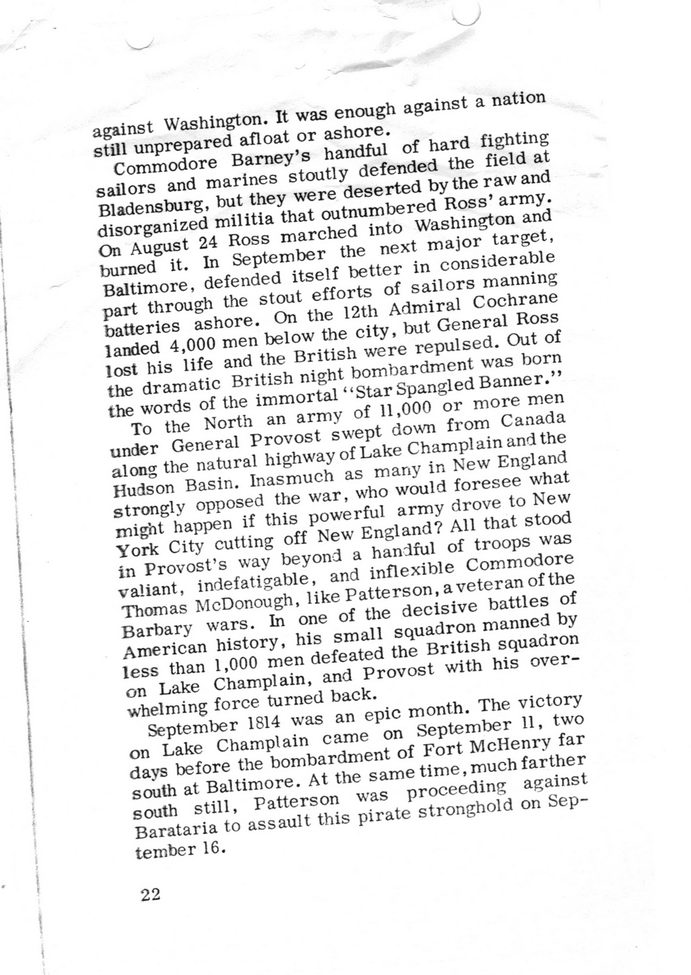This text was obtained via automated optical character recognition.
It has not been edited and may therefore contain several errors.
against Washington. It was enough against a nation still unprepared afloat or ashore. Commodore Barney?s handful of hard fighting sailors and marines stoutly defended the field at Bladensburg, but they were deserted by the raw and disorganized militia that outnumbered Ross? army. On August 24 Ross marched into Washington and burned it. In September the next major target, Baltimore, defended itself better in considerable part through the stout efforts of sailors manning batteries ashore. On the 12th Admiral Cochrane landed 4,000 men below the city, but General Ross lost his life and the British were repulsed. Out of the dramatic British night bombardment was born the words of the immortal ?Star Spangled Banner.? To the North an army of 11,000 or more men under General Provost swept down from Canada along the natural highwayof Lake Champlain and the Hudson Basin. Inasmuch as many in New England strongly opposed the war, who would foresee what might happen if this powerful army drove to New York City cutting off New England? All that stood in Provost?s way beyond a handful of troops was valiant, indefatigable, and inflexible Commodore Thomas McDonough, like Patterson, a veteran of the Barbary wars. In one of the decisive battles of American history, his small squadron manned by less than 1,000 men defeated the British squadron on Lake Champlain, and Provost with his overwhelming force turned back. September 1814 was an epic month. The victory on Lake Champlain came on September 11, two days before the bombardment of Fort McHenry far south at Baltimore. At the same time, much farther south still, Patterson was proceeding against Barataria to assault this pirate stronghold on September 16. 22

Battle of 1814 P22